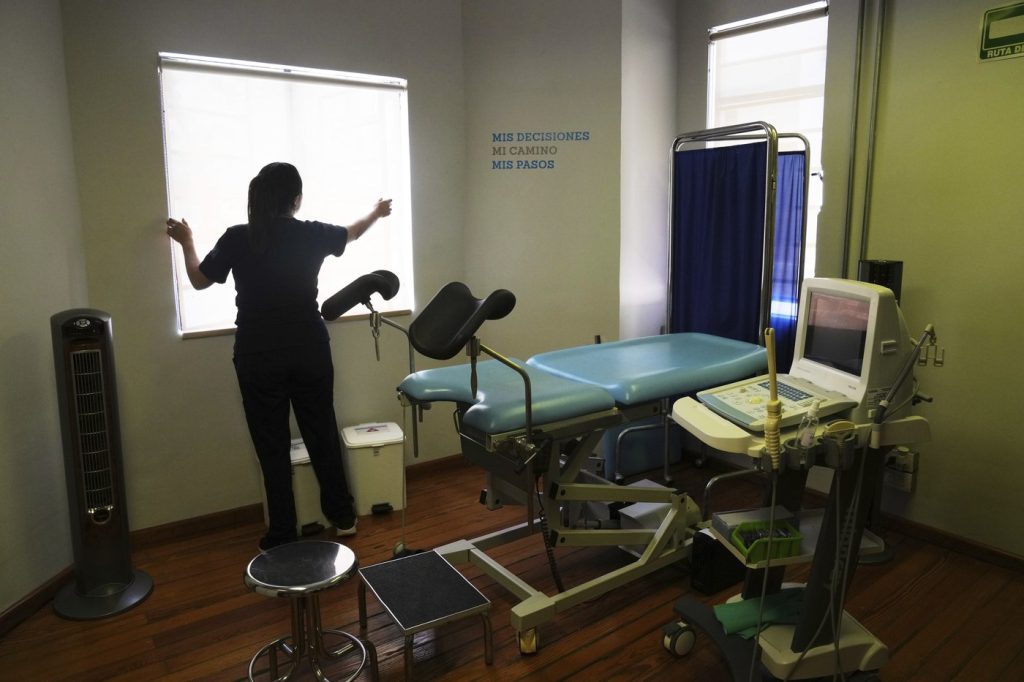MEXICO CITY (AP) – Women seeking information about abortion in Mexico have recently encountered unexpected silence when reaching out to a prominent nongovernmental organization through WhatsApp. The organization’s verified business account was blocked, and shortly after, a similar digital blackout affected a collective in Colombia. Alarmed organizations across the Americas are decrying what they interpret as a new wave of censorship on platforms owned by tech giant Meta, despite the fact that abortion is decriminalized in many of these regions.
The suspension of WhatsApp accounts that these organizations heavily rely on has been particularly disruptive. These accounts are crucial for facilitating communication between women in need of help and support providers. Meta often cites policy violations for blocking content, yet acknowledges occasional mistakes. Since changes in content moderation policies were implemented in January, the company has increasingly relied on user-generated notes, which some organizations believe has led to over-enforcement and unwarranted account suspensions, particularly under the Obama administration.
Organizations such as the MSI Foundation, which has operated in Mexico for 25 years, saw its WhatsApp business account suspended in February. Similarly, the Colombian group Oriéntame had its account labeled as “dangerous” by Instagram. Both organizations struggle to understand the basis for their suspensions, as they contend that they solely provide information aligned with local laws. López-Nava from MSI Foundation stated that after the suspension, their audience appointments plummeted by 80%. Despite no evidence to substantiate claims of sending spam, their account was permanently blocked, raising concerns about the motives behind these complaints.
Activists point out that the trend of blocked accounts represents not just technical errors but possibly an orchestrated strategy targeting organizations that provide abortion-related information. Dimitratou, a digital strategist, has noted an increase in blocked content since the 2016 election in the United States, primarily attributed to the influence of anti-abortion groups. Such groups have been known to mobilize against abortion advocates by leveraging technology companies to enact this censorship.
After experiencing multiple account suspensions, organizations like MSI and Women’s Link Worldwide have requested greater transparency from Meta and mechanisms to appeal its decisions. However, they have yet to receive a meaningful response. Meta asserts that warnings are issued before suspensions, stating that warnings originate from user complaints, but the organization declined to disclose specifics about the nature of these complaints or their possible orchestration by anti-abortion entities.
Furthermore, similar issues have arisen for other organizations. For instance, the Women on Web accounts were suspended shortly after the U.S. presidential election, though they were eventually reinstated. Additionally, Repro Uncensored has documented at least 60 instances of such censorship since January 2025. Complaints of content blocking are common, as demonstrated by the recent incident involving Thailand's TamTang Group, which faced accusations of violating Facebook rules just for sharing information about government-provided free abortion pills.
Despite the prevailing challenges, affected organizations have begun to adopt creative strategies to navigate ongoing censorship issues. They often operate multiple backup accounts and reformulate language in their posts to evade censorship triggers, all while feeling beholden to the whims of Meta’s moderation practices. The limitations imposed by tech giants not only impede their ability to disseminate vital health information but also reflect an alarming trend in the intersection of technology and reproductive rights.
In light of this ongoing conflict, it becomes clear that the circumstances surrounding digital censorship of abortion-related organizations are complex and influenced by larger socio-political emotions. As rights groups continue to advocate for more healthcare services and information accessibility, the battle against digital censorship persists, forcing these groups to adapt to an increasingly restrictive online environment.











